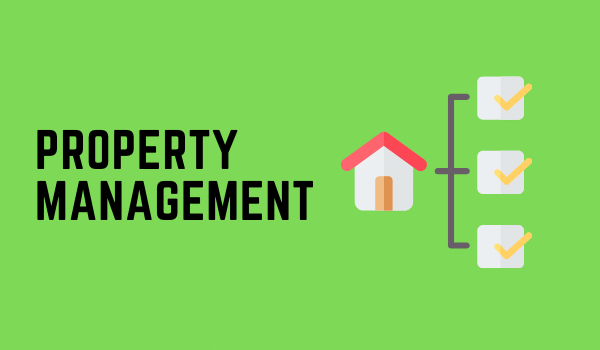Introduction
Property management can be a profitable company, but it is also highly competitive.
You must take a few actions to ensure that your property management firm succeeds in this market.
First and foremost, you must provide excellent client service.
This will result in higher client retention and a more significant number of referrals.
You also want to give your tenants the best living experience possible.
This equates to happier consumers and lower turnover.
Furthermore, it is critical that you maintain an eye on the bottom line at all times.
Maintaining a healthy balance sheet is critical, whether it means reducing spending or discovering new ways to generate revenue.
With these pointers in mind, here’s how you can get started in property management!
Property Management services
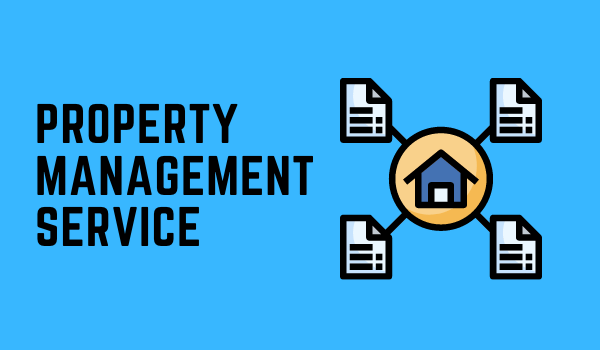
The following is a list of property managers’ everyday tasks for their clients. You may only need some of these property management services, and the businesses you look at may offer more or fewer than the ones on this list.
Take a look at the property and figure out what the rent should be.
Take detailed pictures and videos of the inside and outside of the house.
- Make suggestions for repairs and cosmetic improvements to help renters get the most for their money while also getting good returns.
- Analyze the rental rates in your neighborhood
- Then work with owners to figure out the best rate.
- Rent research will be different, but it should look at recently rented homes of the same size and type.
- When talking to people who own a business, find out what they think about policies like allowing pets or smoking.
- Putting in a lockbox
The property should be put on the rental market.
Prepare your home for rent.
- Clean and improve the appearance of your home.
- Landscaping with manicures is an excellent way to make your home look better from the outside.
Adapt the ads to the property and the way they will be shown to fit. Some of the mediums are as follow:
- There are both paid and free rental websites.
- Make copies of the things you read.
- Signs
- MLS \sFliers
With help from other realtors, find a tenant for your home or apartment building.
Provide a 24-hour hotline where people who want to rent the property can get more information about it.
Calls from people who want to ask questions and see the place
During the week and on the weekend, you can meet with potential tenants for showings.
Rent applications that are legally compliant with fair housing laws to people who want to rent a home.
Collection applications with application fee
Choosing a tenant and screening them
- Conduct a background check to confirm identity, income, credit history, rental history, and other relevant information.
- Grade each tenant based on a list of pre-defined tenant criteria.
- Inform tenants who have denied.
Tenant Move-In
- Make a lease agreement.
- Check with your tenant to ensure they can move in on the agreed-upon date.
- Discuss the lease terms with the renter. Includes details such as when the rent is due and how frequently the property is cleaned.
- Verify that all contracts are correctly signed.
- Perform a thorough move-in inspection with the tenant and have them sign a report stating that the property was in acceptable condition before their arrival.
- The first month’s rent and a security deposit should be collected when the renter moves in.
Collection of rent
- Receiving rent
- pursuing overdue payments
- Sending out pay or resignation notifications
- Imposing late fees
Evictions
- Filing the necessary paperwork to start and finish an unlawful detainer action
- In court, I represent the owner.
- Coordination with law enforcement for the removal of the tenant and their belongings from the apartment
Inspections
- The inside and outside of the building should be checked for maintenance needs, safety issues, code violations, lease violations, and so on at set times.
- Send the owner monthly reports on the property’s condition.
Financial
- Assist in the accounting and management of the property.
- Make payments for the owner on their behalf (Mortgage, insurance, HOA dues, etc.) To keep track of spending, keep invoices and receipts.
- Keep detailed records of all historical events (paid invoices, leases, inspection reports, warranties, etc.)
- Annual reports that are tax-friendly and important tax documents, like a 1099 form, should be provided.
- Assist the owner in figuring out what tax deductions they can take for their rental home.
- Provide easy-to-read monthly cash flow statements that show revenue and expenses.
Tenant Move Out
- When the client moves out, inspect the unit and report the property’s condition.
- Provide a copy to the tenant and an estimate of the damages.
- Return the security deposit balance to the tenant.
- Any portion of the owner’s amount of the tenant deposit should be forwarded to the owner or hold in owner reserves for repairs.
- Clean the unit and make any necessary repairs or updates.
- Replace the locks.
- Place the property back on the rental market.
This isn’t meant to be a complete list of everything a property management company does, but it should give you a good idea of what they do.
Property management Courses
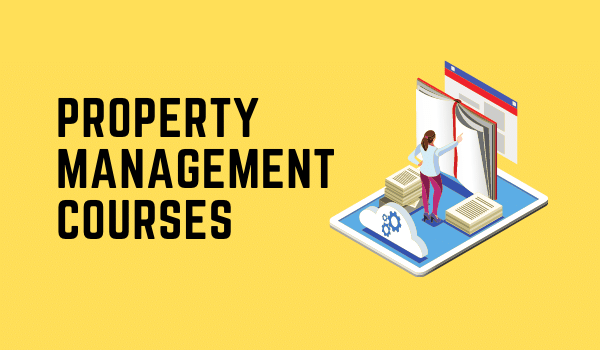
A property management course is not a new idea. Since the 1800s, businesses have become more common, and people realized that they needed to keep track of their properties. Today, many universities worldwide still teach property management as a class.
Here’s what you’ll learn from this course:
- What is property management?
- The importance of property management in society
- The role of a professional property manager
- How to become an experienced property manager
- Types of buildings that need property managers
- Property management skills are required for success.
Best Property Management Courses of 2021
- Certified Apartment Management Course—NAA
- Property Management Certificate Course—Penn Foster
- Certified Property Manager Course—IREM
- Master Property Manager Course—NARPM
- Vacation Rental Management Course—VRMA
- Certified Manager for Commercial Properties Course—BOMA
- Property Management Courses—UDEMY
Property management System
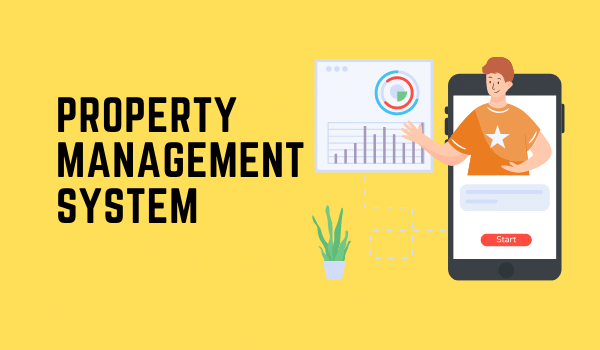
A property management system (PMS) is a computer program that helps people who rent out places like hotels, apartments, and homes. People also use the PMS system to work in the industrial and municipal sectors and make things and make things. A hotel operating system, or hotel OS, is another name for a system that helps people run their homes.
In the hospitality industry, PMS is a central computer system that helps organize, schedule, and carry out day-to-day operations and transactions. Computer record keeping and property management systems (PMS) have made the hotel industry a lot more efficient by letting people update and look at the duplicate records from many different computers and devices.
If you want to make things run more smoothly, property management system (PMS) plans are made to fit your business.
- A project management system automates many everyday tasks, such as:
- Bookings
- Check-in and check-out rules
- Telephone systems that work together
- Able to integrate point of sale (POS) systems.
- Event Organized
- The cost of food and drinks
- In hotels, inventory and supply management
- There must be a report of key performance indicators (KPI)
- There are locks on the doors of rooms and security on the streets.
Local governments may use property management systems (PMS) to manage many different properties that they own. Centralized and electronic record-keeping improves efficiency a lot. All of these things are called facilities. They are places like schools, gyms, community gardens, and parks. PMS is used a lot in manufacturing to keep track of materials and supplies and employee-owned property and equipment.
Property Management Software
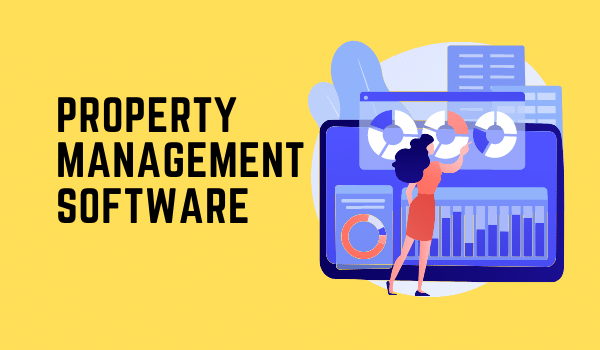
Property management in the United States makes $88.4 billion a year.
Investors, landlords, and property managers use a lot of different software programs to keep track of things like tenant interactions and tax issues, so a lot of them have sprung up.
The software may help you find, screen, and manage tenants, as well as track expenses and income.
List Of Best Property Management Software:
1. Avail
Key Features:
- Contact management
- Residential properties
- Rent tracking
- Tax management
- Tenant portal
- Lease management
2. Buildium:
Key Features:
- Residential leases
- Residential properties
- Lease origination
- Maintenance management
- Rent tracking
- Tenant tracking
3. Entrata:
Key Features:
- Tenant portal
- Tenant tracking
- Residential properties
- Payment processing
- Commercial property management
- Lease management
4. Hemlane:
Key Features:
- Tenant portal
- Residential properties
- Rent tracking
- Owner portal
- Property database
- Commercial property management
5. Innago:
Key Features:
- Residential properties
- Rent tracking
- Tenant tracking
- Tenant portal
- Property database
- Commercial property management
6. Rentec Direct:
Key Features:
- Residential properties
- Retail leases
- Tenant tracking
- Tenant portal
- Work order management
- Property management
7. Rent Manager:
Key Features:
- Residential properties
- Tenant portal
- Tenant tracking
- Commercial property management
- Property database
- Rent tracking
8. TurboTenant:
Key Features:
- Rent tracking
- Commercial property management
- Lease management
- Residential properties
- Tenant portal
- Tenant tracking
Property management duties and Responsibilities
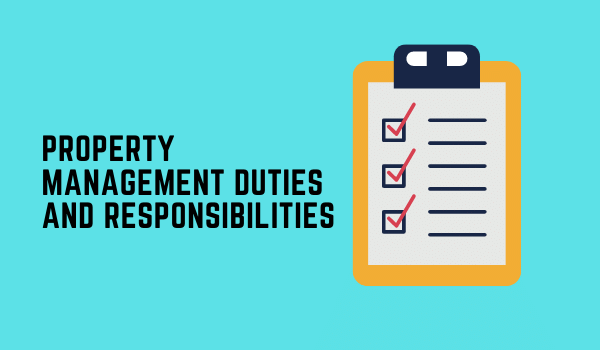
1. Deciding the rent price
The optimal rental price is neither too expensive nor too low. It should be profitable and affordable to both the owner and the tenant. Home managers estimate your property’s optimum monthly rent rate based on the most recent market data.
2. Preparation of unoccupied apartments
A vacant unit is something that no landlord wants. The property manager is responsible for cleaning, repairing, and maintaining the area. This expert will also assist you in determining which modifications to your property will attract the most OK tenants.
3. Advertising
If you are dealing with vacancies, you may require marketing assistance. For first-time investors, this stage of the process might be overwhelming.
A professional property manager may assist with marketing by advertising on specific internet platforms and offline marketing techniques. They have the experience to know what works and what doesn’t, and they can assist you with your marketing strategies.
4. Tenant screening and approval
Every day that a property is vacant costs you money. Another reason for investment failure is choosing the wrong tenant, which can cost you four to six times the monthly rental payment.
A property manager understands how to screen tenants thoroughly and efficiently discover responsible and reliable renters. These smart tenant placements are the product of property managers’ stringent background screening procedures, including credit, employment, rental history, and criminal background checks.
Property managers have enough staff to discover suitable tenants for your vacant rental apartments. They will perform rigorous background checks before approving an application. They also understand how to follow the criteria specified in the Fair Housing Act when evaluating tenants (FHA).
5. Creating and enforcing a lease.
Suppose you are unfamiliar with lease agreements and other legal requirements, such as deposit fees. In that case, a property manager can determine the lease terms for you. Leaving this stage to professionals will protect your interests as well as the interests of your property.
One of the most important documents is a leasing agreement. This agreement will cover everything from security deposits to late rent fees and other contracts to ensure that your home is in good condition.
6. Dealing with tenant concerns and issues
Maintaining an investment property is a 24-hour job, and you must be available at all times for tenant complaints and emergencies. If you don’t think you can handle this obligation, a property manager will take care of it for you.
Property managers are used to dealing with tenant complaints. They have the means to deal with emergency circumstances such as plumbing or electrical problems.
7. Rent collection and adjustment
There is also an option to eliminate the unnecessary tension that comes with rent collection. Your property manager will collect rent from your renters and track any late payments.
This way, you can be confident that you will never have to worry about late payments or other payment methods such as cheques or cash. Your property manager will handle all rent collection chores and ensure that everything is in order.
8. Performing maintenance and repairs
Regular maintenance requests from renters are part of a property manager’s job. This may demand 24/7 personnel. If you don’t have the time or energy to deal with your client’s needs daily, consider hiring someone to do it for you.
Your property manager will also undertake routine maintenance tasks like cleaning, painting, and gutter and drain cleaning. A pool of vendors and contractors will very definitely be ready to assist.
9. Managing on-site staff
A property manager is also in charge of on-site workers such as security, cleaners, concierges, and housekeepers. They monitor these employees’ daily activities to ensure they perform their duties effectively. The manager can also be in charge of on-site employee hiring and performance management.
10. Taking care of the property
Aside from checking the unit once the tenant has left, property managers examine vacant units monthly for pest infestations and general conditions.
Property managers have workers who monitor your rental area for vandalism.
11. Dealing with evictions and move-outs
When a tenant breaches an agreement or fails to pay their rent, the property manager understands how to file and execute an eviction. They are well-versed in the procedure and are well-versed in all of the regulations.
The property manager must inspect the rental unit when a tenant intends to leave. They will make sure everything is in order, and the apartment is in the same condition as when hired.
If everything is in order, they will proceed with the move-out and refund the security deposit. If there are any damages, they will analyze the situation and determine how much your security deposit you can keep.
Your property manager will arrange the flat for the next tenants after leaving.
12. Making sure that the property is legally compatible
A professional property manager is well-versed in all of the rules governing the processing of security deposits, screening tenants, negotiating and terminating leases, and adhering to standards.
13. Tax Returns
A property manager is familiar with the taxes associated with owning a rental property.
They can assist property owners in comprehending the documentation and procedures required to file taxes. The property owner might also delegate tax filing to the manager.
14 Maintaining records and generating regular reports
Accounting is another responsibility that falls under the purview of a property manager. Your manager will keep track of income and spending, inspections, repairs and upkeep, insurance costs, and rent collection.
Other property managers’ database items include tenant complaints, signed leases, and maintenance requests.
Records allow you to keep track of your property’s growth and financial status. The property manager must maintain correct and up-to-date records for your investment.
So there you have it. You now have a better understanding of what a property management business can do for you and how you can benefit from the professional services of a competent and licensed property manager.
Keep in mind that not all managers are in charge of these duties. Ensure that it does the majority, if not all, of the required tasks.
Property management Certification
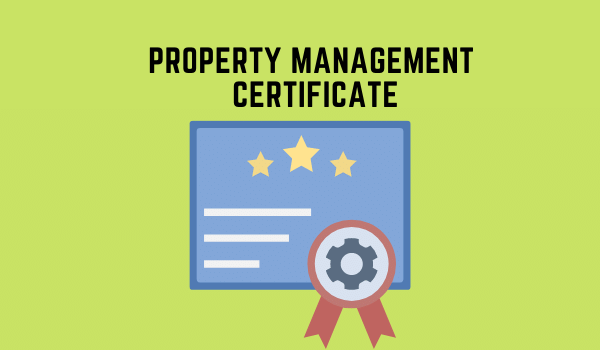
It will teach you the skills you need to do well in this field, giving you an advantage over other people. The certification procedure includes courses, workshops, and examinations.
The benefits of certification include:
- Identifying as a qualified professional.
- Maintaining better communication with tenants.
- Improving communication with other professionals.
- Understanding trends.
- Keeping up with industry standards.
Read More About Certification: Property Management Certification
Property Management Company
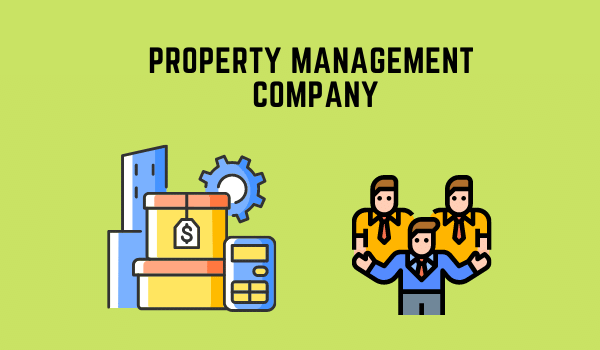
It’s essential to choose the right company to manage your home.
Because your home is one of the essential things in your life, you don’t want to risk it.
You need to find a property management company that will treat your home as if it were their own, so you can get back to living your life.
People who run a property management company have to spend a lot of time and money.
At the same time, it also requires a lot of knowledge about real estate laws and legislation and a lot of experience with tenants and homeowners; Not everyone can do it.
They don’t have the skills or experience to do this work.
So how do you find out if the company you’re thinking about is one of them, then?
Best Property Management Companies of 2021
- Greystar
2. BH Management Services
3. Colliers International
4. Lincoln Property Company
5. Apartment Management Consultants (AMC)
6. Buildium
If you enjoyed this article, please share it and read more. How to Start Real Estate Business
How to Become a Real Estate Agent: Everything You Need to Know
